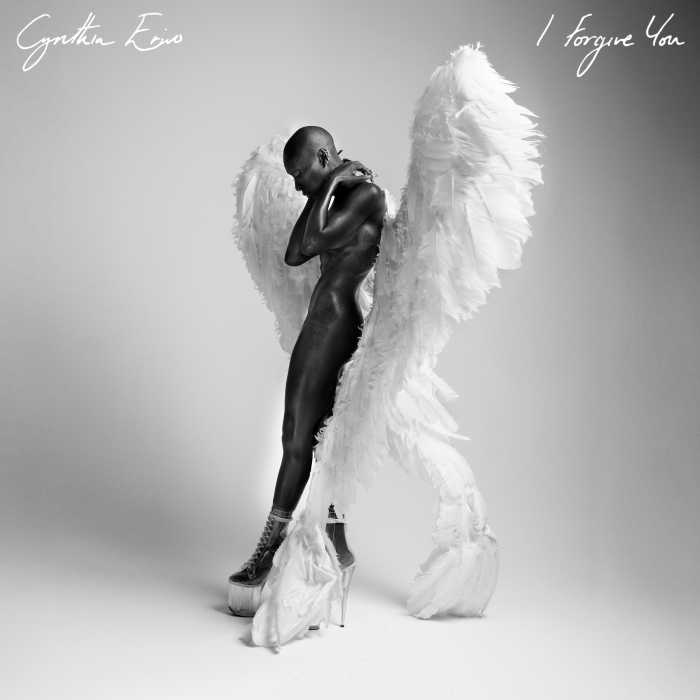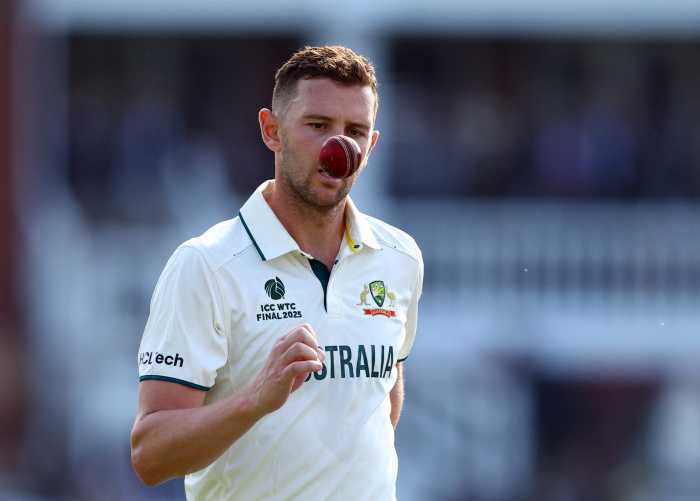“Saturation III,” Brockhampton’s third album in six months, was released December 15. | QUESTION EVERYTHING/ EMPIRE
Brockhampton announced themselves to the American music scene with an amount of hype that a well-funded major label would envy: three albums released within six months, a reality show on the Viceland cable channel, and 12 music videos. They officially have 14 members now, including those who are involved with music production, mixing, and graphic design as well as the seven rappers performing upfront.
Despite their sound, they insist they’re a “boyband” — their TV show’s name was “American Boyband” — rather than a hip-hop group. Out gay member Kevin Abstract has emerged as their de facto leader. He released a solo album last year, for which he made the video “Miserable America” portraying a lesbian teenager shooting the leader of a “conversion therapy” center after a suicide there. Abstract has also directed all the band’s music videos. The group just released a 22-minute short film, “Billy Star,” as a teaser for his feature-length debut. And he’s only 21!
Abstract’s verse beginning “Junky,” the best track on their album “Saturation II,” helps explain what makes Brockhampton different from previous mainstream hip-hop groups and boy bands alike: it takes on gay invisibility and violence toward gay men with a ferocity and sexual frankness unprecedented in music aimed anywhere near the mainstream. Then Abstract shares the spotlight with other members who rap about their drug use, making it sound rather disturbing instead of celebrating it, and condemn misogyny. Ameer Vann’s confident flow and hard-hitting lyrics make him the group’s other most memorable MC. Abstract, Vann, and the Justin Timberlake-evoking singer JOBA are the three members I can picture having thriving solo careers.
With “Saturation III,” Brockhampton, out gay ringleader Kevin Abstract continue to storm the stage
Brockhampton have created a mystique about themselves, even though Abstract talked a great deal about himself and his teenage alienation on their TV show. All their videos are introduced in Spanish by a 30-ish Latino guy called Robert, who pops up on their albums’ interludes. Their best clip, “Gummy,” hilariously shows the group planning a bank robbery with an alpaca in tow. Their songs all have one-word titles. Unlike most hip-hop artists who release their own music, they are not aiming for an underground cult audience — though that’s exactly what they’ve found so far. Their live shows are reportedly carefully choreographed.
Brockhampton have consciously followed in the footsteps of hip-hop/ R&B collective Odd Future, which made stars out of queer singer Frank Ocean and rapper Tyler, the Creator, who started out expressing extreme homophobia on his debut album “Goblin” and is now strongly hinting that he’s gay. Instead of Odd Future’s contradictory yet inclusive attitudes around gayness (they also included lesbian singer Syd), Brockhampton are completely upfront and unapologetic about Abstract’s sexuality: they’re a boy band for a generation where hip-hop is the lingua franca for youth of all races and it’s common for gay teens to come out in high school. And they’re doing all this controlling their own image and production, releasing their music on their own indie label Question Everything.
None of Brockhampton’s ability to market themselves or make endless numbers of videos would matter if their music had no substance, but their three albums reach beyond Odd Future to the Wu-Tang Clan’s mixture of nine rappers with much different styles in various combinations. No Brockhampton song continues a whole lyrical theme for an entire four minutes. Their rappers join together in a seemingly random combination. (On “Stains,” someone mock-criticizes Brockhampton as “the one gay, the one selling drugs, the one tryna act like Lil Wayne.”) At worst, this can be rather jarring; at best, it means that much of their material has the excitement of the greatest hip-hop posse cuts. It works to most potent effect on their best album, “Saturation II.”
The mixture of rappers with different agendas tends toward songs that range from violent bragging to intense introspection in the space of 90 seconds. The opener and first single from “Saturation III,” “Boogie,” gets things popping in an upbeat direction with danceable beats and an infectious chorus. One of the album’s most haunting songs, “Bleach,” combines heavy use of sung vocals with a spacey electronic backing track. Dr. Dre’s early ‘90s G-funk production, with its whirring analog synthesizers, is an unexpected influence on the group. The six-minute “Sister/ Nation” flirts with EDM but changes musical tone several times. The closing track, “Team,” is also one of the album’s most musically adventurous, coming close to singer Miguel’s more psychedelic neo-soul moments, based around funky electric guitar instead of synthesizer and only introducing rapping halfway through.
Last Friday, the release of “Saturation III” went head to head with Eminem’s latest album, “Revival,” and other high-profile hip-hop releases from N.E.R.D and Jeezy. Of course, Brockhampton are in no position to outsell Eminem right now, but they offer a vision of hip-hop that’s far more inclusive. “Saturation III” speaks for a community that sounds a lot like millennial America right now. It’s not a perfect one: the boy band could stand to have a full-time “girl” offering her perspective — although women’s voices are heard on their albums — and stand to drop the word “bitch” less often. But even these contradictions say something about America circa 2017. Releasing almost three hours of music in six months would challenge any artist. It’s impressive that Brockhampton have shown audible growth from “Saturation” to “Saturation III.”
BROCKHAMPTON | “Saturation III” | Question Everything/ Empire | $9.99 at brckhmptn.com



































